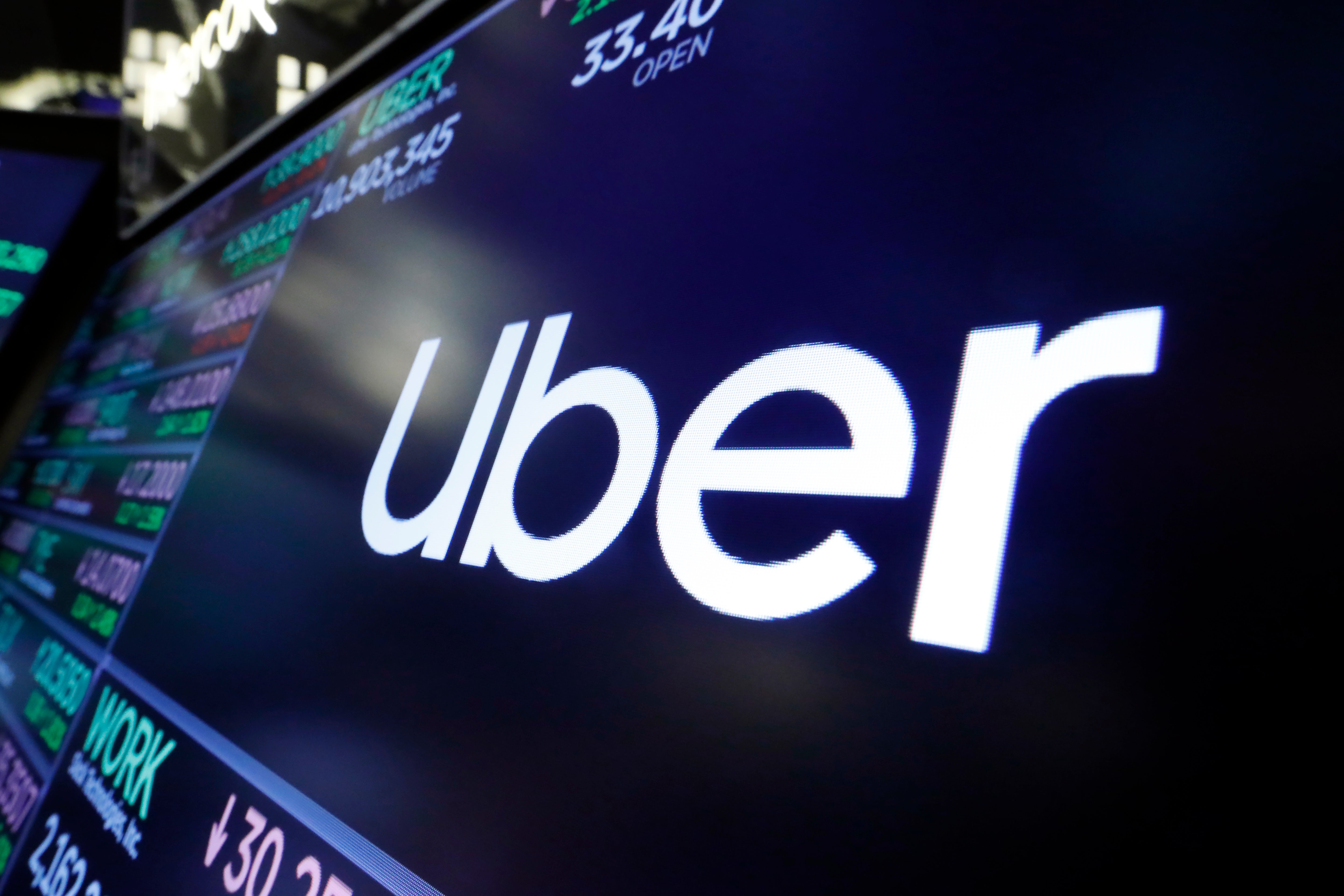Uber signs driver bargaining agreement with major UK union
Uber says it’s formally recognizing a major British trade union

Your support helps us to tell the story
From reproductive rights to climate change to Big Tech, The Independent is on the ground when the story is developing. Whether it's investigating the financials of Elon Musk's pro-Trump PAC or producing our latest documentary, 'The A Word', which shines a light on the American women fighting for reproductive rights, we know how important it is to parse out the facts from the messaging.
At such a critical moment in US history, we need reporters on the ground. Your donation allows us to keep sending journalists to speak to both sides of the story.
The Independent is trusted by Americans across the entire political spectrum. And unlike many other quality news outlets, we choose not to lock Americans out of our reporting and analysis with paywalls. We believe quality journalism should be available to everyone, paid for by those who can afford it.
Your support makes all the difference.Uber said Wednesday it's formally recognizing a major British trade union so it can represent drivers, a breakthrough for labor campaigners seeking fairer working conditions from the ride-hailing giant.
The San Francisco-based company said it signed a collective bargaining agreement with the GMB trade union, one of the U.K.'s biggest.
Under the agreement, the GMB will represent Uber's 70,000 drivers across the U.K. The drivers will still be able to choose if, when and where they drive. Union membership won't be automatic and drivers will have to sign up for it.
“History has been made," GMB National Official Mick Rix said in a statement issued by Uber. “This agreement shows gig economy companies don’t have to be a wild west on the untamed frontier of employment rights."
Uber and other app-based gig economy companies have been facing pressure across Europe to reform labor models that are often blamed for precarious jobs and low salaries.
The deal comes after the U.K.'s top court disrupted Uber's business model by ruling earlier this year that the company's drivers should be classed as workers and not self-employed. That entitled them to benefits such as minimum wage, pensions and holiday pay, which the company has started providing.
The GMB is more than 100 years old and represents 620,000 U.K. workers. Another group that led the legal challenge, the App Drivers & Couriers Union, greeted the announcement cautiously.
“Overall, this is a step in the right direction, but there are significant obstacles in the way of ADCU reaching a similar agreement,” including disagreement with the way Uber calculates minimum wage and holiday pay, it said.
The ADCU said it also has concerns about Uber’s motivations, and said it's worried that the company is seeking to use the “appearance of blunt collective bargaining agreements" to weaken the power of workers rather than strengthen them.